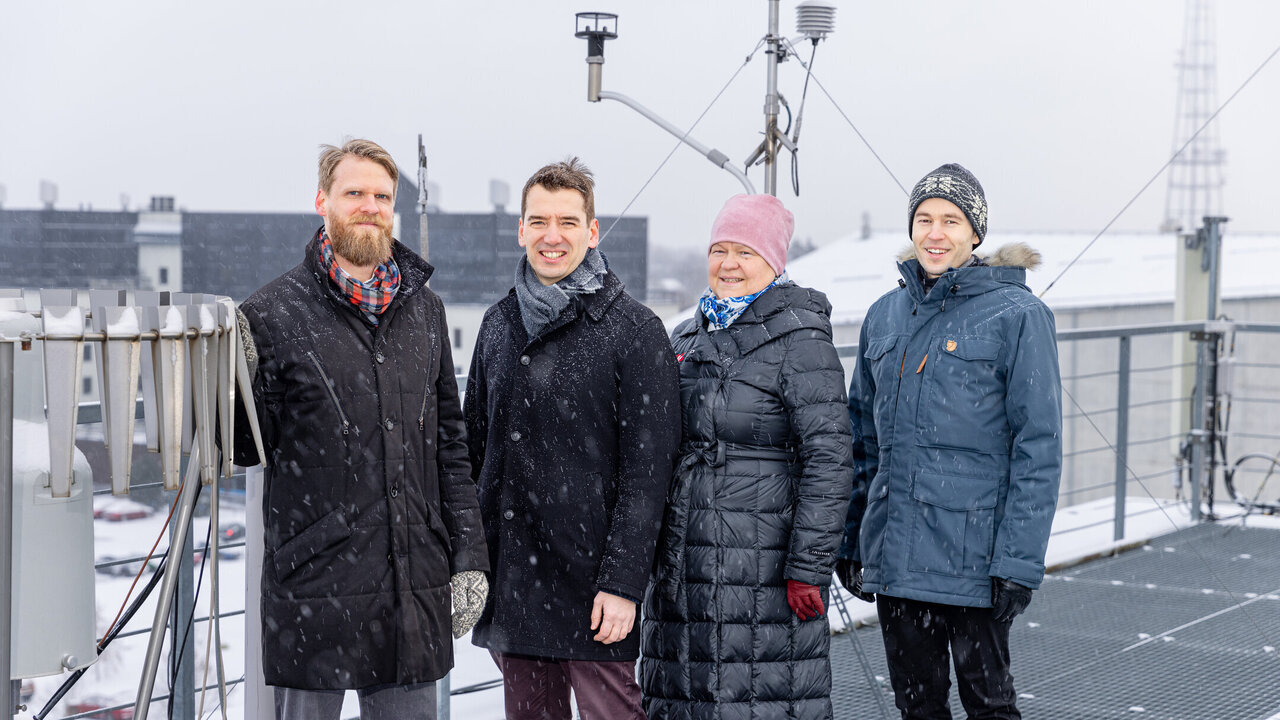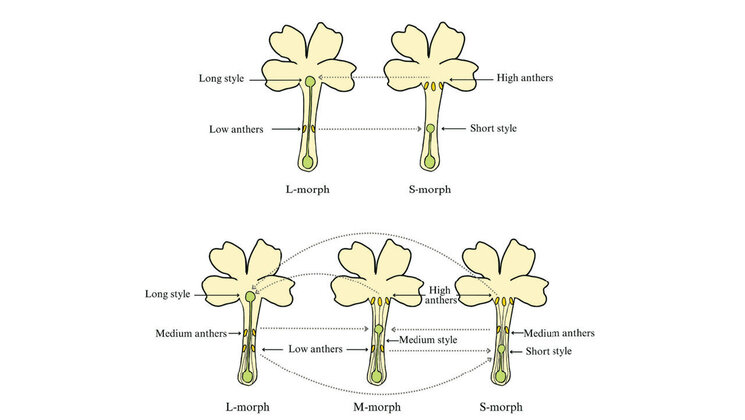-
Faculty of Arts and HumanitiesDean's Office, Faculty of Arts and HumanitiesJakobi 2, r 116-121 51005 Tartu linn, Tartu linn, Tartumaa EST0Institute of History and ArchaeologyJakobi 2 51005 Tartu linn, Tartu linn, Tartumaa EST0Institute of Estonian and General LinguisticsJakobi 2, IV korrus 51005 Tartu linn, Tartu linn, Tartumaa EST0Institute of Philosophy and SemioticsJakobi 2, III korrus, ruumid 302-337 51005 Tartu linn, Tartu linn, Tartumaa EST0Institute of Cultural ResearchÜlikooli 16 51003 Tartu linn, Tartu linn, Tartumaa EST0Institute of Foreign Languages and CulturesLossi 3 51003 Tartu linn, Tartu linn, Tartumaa EST0School of Theology and Religious StudiesÜlikooli 18 50090 Tartu linn, Tartu linn, Tartumaa EST0Viljandi Culture AcademyPosti 1 71004 Viljandi linn, Viljandimaa EST0Professors emeriti, Faculty of Arts and Humanities0Associate Professors emeriti, Faculty of Arts and Humanities0Faculty of Social SciencesDean's Office, Faculty of Social SciencesLossi 36 51003 Tartu linn, Tartu linn, Tartumaa EST0Institute of EducationJakobi 5 51005 Tartu linn, Tartu linn, Tartumaa EST0Johan Skytte Institute of Political StudiesLossi 36, ruum 301 51003 Tartu linn, Tartu linn, Tartumaa EST0School of Economics and Business AdministrationNarva mnt 18 51009 Tartu linn, Tartu linn, Tartumaa EST0Institute of PsychologyNäituse 2 50409 Tartu linn, Tartu linn, Tartumaa EST0School of LawNäituse 20 - 324 50409 Tartu linn, Tartu linn, Tartumaa EST0Institute of Social StudiesLossi 36 51003 Tartu linn, Tartu linn, Tartumaa EST0Narva CollegeRaekoja plats 2 20307 Narva linn, Ida-Virumaa EST0Pärnu CollegeRingi 35 80012 Pärnu linn, Pärnu linn, Pärnumaa EST0Professors emeriti, Faculty of Social Sciences0Associate Professors emeriti, Faculty of Social Sciences0Faculty of MedicineDean's Office, Faculty of MedicineRavila 19 50411 Tartu linn, Tartu linn, Tartumaa ESTInstitute of Biomedicine and Translational MedicineBiomeedikum, Ravila 19 50411 Tartu linn, Tartu linn, Tartumaa ESTInstitute of PharmacyNooruse 1 50411 Tartu linn, Tartu linn, Tartumaa ESTInstitute of DentistryL. Puusepa 1a 50406 Tartu linn, Tartu linn, Tartumaa ESTInstitute of Clinical MedicineL. Puusepa 8 50406 Tartu linn, Tartu linn, Tartumaa ESTInstitute of Family Medicine and Public HealthRavila 19 50411 Tartu linn, Tartu linn, Tartumaa ESTInstitute of Sport Sciences and PhysiotherapyUjula 4 51008 Tartu linn, Tartu linn, Tartumaa ESTProfessors emeriti, Faculty of Medicine0Associate Professors emeriti, Faculty of Medicine0Faculty of Science and TechnologyDean's Office, Faculty of Science and TechnologyVanemuise 46 - 208 51003 Tartu linn, Tartu linn, Tartumaa ESTInstitute of Computer ScienceNarva mnt 18 51009 Tartu linn, Tartu linn, Tartumaa ESTInstitute of GenomicsRiia 23b/2 51010 Tartu linn, Tartu linn, Tartumaa ESTEstonian Marine Institute0Institute of PhysicsInstitute of ChemistryRavila 14a 50411 Tartu linn, Tartu linn, Tartumaa EST0Institute of Mathematics and StatisticsNarva mnt 18 51009 Tartu linn, Tartu linn, Tartumaa EST0Institute of Molecular and Cell BiologyRiia 23, 23b - 134 51010 Tartu linn, Tartu linn, Tartumaa ESTTartu ObservatoryObservatooriumi 1 61602 Tõravere alevik, Nõo vald, Tartumaa EST0Institute of TechnologyNooruse 1 50411 Tartu linn, Tartu linn, Tartumaa ESTInstitute of Ecology and Earth SciencesJ. Liivi tn 2 50409 Tartu linn, Tartu linn, Tartumaa ESTProfessors emeriti, Faculty of Science and Technology0Associate Professors emeriti, Faculty of Science and Technology0Institute of BioengineeringArea of Academic SecretaryHuman Resources OfficeUppsala 6, Lossi 36 51003 Tartu linn, Tartu linn, Tartumaa EST0Area of Head of FinanceFinance Office0Area of Director of AdministrationInformation Technology Office0Administrative OfficeÜlikooli 17 (III korrus) 51005 Tartu linn, Tartu linn, Tartumaa EST0Estates Office0Marketing and Communication OfficeÜlikooli 18, ruumid 102, 104, 209, 210 50090 Tartu linn, Tartu linn, Tartumaa EST0Area of RectorRector's Strategy OfficeInternal Audit OfficeArea of Vice Rector for Academic AffairsOffice of Academic Affairs0University of Tartu Youth AcademyUppsala 10 51003 Tartu linn, Tartu linn, Tartumaa EST0Student Union OfficeÜlikooli 18b 51005 Tartu linn, Tartu linn, Tartumaa EST0Centre for Learning and TeachingArea of Vice Rector for ResearchUniversity of Tartu LibraryW. Struve 1 50091 Tartu linn, Tartu linn, Tartumaa EST0Grant OfficeArea of Vice Rector for DevelopmentCentre for Entrepreneurship and InnovationNarva mnt 18 51009 Tartu linn, Tartu linn, Tartumaa EST0University of Tartu Natural History Museum and Botanical GardenVanemuise 46 51003 Tartu linn, Tartu linn, Tartumaa EST0International Cooperation and Protocol Office0University of Tartu MuseumLossi 25 51003 Tartu linn, Tartu linn, Tartumaa EST0
University of Tartu research award went to Centre for Climate Research for discovery about anthropogenic air pollution

The University of Tartu research award 2024 went to an extraordinary discovery by researchers of the Centre for Climate Research of the Institute of Physics – an international study led by Associate Professor in Climate Physics Velle Toll revealed that in industrial hot spots, anthropogenic air pollution causes snowfall and reduces cloud cover. The research contributes to a better understanding of the impact of pollution particles on clouds, which is the most ambiguous component of the climate impact of human activities.
“Right now, when we have just experienced the hottest year in the world's recorded history, and again the warmest January on record, every new piece of information on the climate impact of human activity is invaluable. It is a huge recognition to the entire university that our climate researchers are leading such world-class research,” said Academic Secretary Tõnis Karki on behalf of the evaluation committee.
Global warming resembles a tug-of-war between the two opposing consequences of human activity: anthropogenic greenhouse gases warming the Earth's climate and air pollution particles cooling it. When it comes to global warming, there has been much talk about greenhouse gases, the effects of which researchers agree on: since the second half of the 20th century, at least 90% of warming is due to anthropogenic greenhouse gases. Velle Toll noted that the extent of the cooling effect of air pollution particles – aerosols – on the climate is still unclear, although it is known to partly offset warming.
This is exactly what the research group of the Centre for Climate Research studies: to what extent the impacts of anthropogenic aerosols on clouds offset global warming caused by anthropogenic greenhouse gases. The physicists discovered that anthropogenic aerosols act as seeds for ice formation in the atmosphere, causing snowfall, reducing cloud cover and affecting solar and thermal radiation fluxes. When there are fewer clouds, the phenomenon causes more solar energy to be absorbed by the ground.
Toll explained that the discovery of his research group underlines the need for further research. “If it turns out that the effects of aerosols acting as seeds for ice formation occur beyond the immediate vicinity of factories, the phenomenon could affect not only industrial areas but the Earth's climate as a whole,” said Toll.
New knowledge helps to compile more reliable climate projections and shape research-based climate policy
“We know from previous research that aerosols make the clouds brighter, cooling the climate. If we could more accurately determine the magnitude of the cooling effect of aerosols on the climate, we would be able to compile even more accurate and reliable climate projections,” explained Toll.
“The broader aim of our research is to investigate whether the cooling effect of aerosols is stronger than previously thought and whether the climate change ahead is faster than projections based on current climate policy indicate,” said Toll. If this effect is strong, it would also mean that global warming so far has been caused by a smaller-than-expected human influence and that the Earth's climate is very sensitive to human influence.
Recipients of the research award are Associate Professor in Climate Physics Velle Toll (head of the research group), Research Fellows in Climate Physics Hannes Keernik and Heido Trofimov, Specialist in Climate Physics Jorma Rahu, Professor of Climate Science Piia Post and Engineer Tanel Voormansik.
The University of Tartu research award is given to recognise a university’s academic staff member or working group who has stood out by an extraordinary achievement in basic or applied research in the previous year. This time, there were five nominations for the research award.
At the beginning of 2024, the previous Laboratory of Atmospheric Physics of the Institute of Physics was replaced by the Centre for Climate Research, focusing on the strength of the climate impact of human activities. The centre’s staff also compile climate projections and promote climate awareness in education.
Read more similar news





